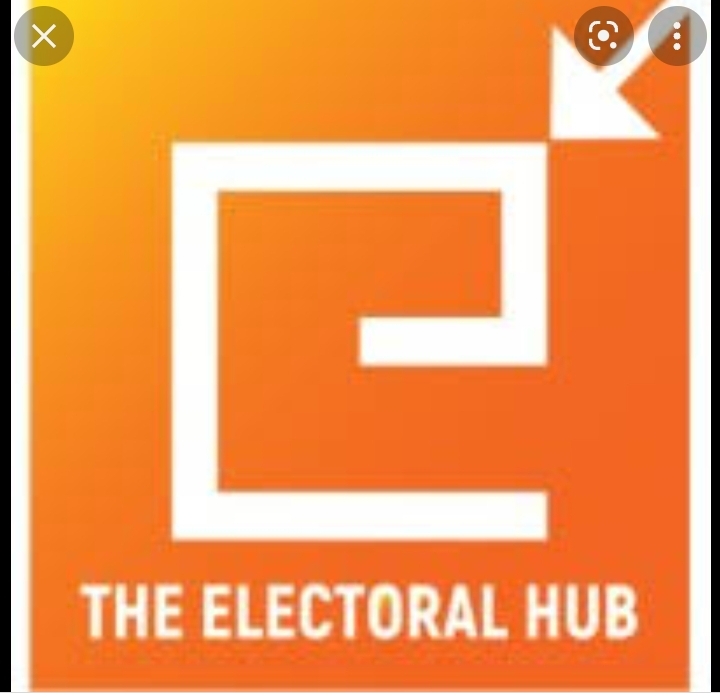By Chimezie Godfrey
In order to improve the integrity and credibility of election processes in the country, the Electoral Hub in collaboration with other stakeholders have recommended the unbundling of the Independent National Electoral Commission INEC for better efficiency.
The recommendation is contained in a Communique issued and signed by the Electoral Hub and other stakeholders at the end of a roundtable on electoral offences held recently in Abuja.
According to the Communique, the roundtable observed that the new Electoral Act 2022 has remarkably improved legal framework for improving the integrity of Nigerian elections moving forward.
It also noted that the new legal framework is deeper in that it has gone a step further than any of the past electoral acts as it is fairly comprehensive in terms of itemizing different electoral offenses and recommending specific penalties.
It added that the integrity of elections go beyond the legal framework to encompass key issues of implementation, compliance and sanctioning of those who violate the legal framework.
The Communique stressed that the key challenge is how the new Act will be applied, including lack of political will to prosecute and punish electoral offenders, and uncertainty of punishment of electoral offences, among others.
In the light of the observations above, the following resolutions were made:”Responsibilities with regards to investigation and prosecution of electoral offences need to be clearly assigned
“The use of punitive measures need to be adequately balanced with restorative justice in such a way as to leverage on the gains of the Criminal Justice Administration Act as well as the nascent Electoral Act.
“There’s a need to devise and put preventive measures in place rather than depending solely on punitive measures (which are mainly reactive) for election crime deterrence since prevention is always better than cure.
“Citizens need to be well informed, well enlightened and well-oriented in terms of understanding the negative consequences of electoral offences hence the need for greater advocacy. This also underscores the need for greater collaboration between INEC, CSOs, the media and other relevant stakeholders for the purpose of advocacy, sensitization etc as well as the need to simplify the constitution and the electoral Act.
“In view of the enormous nature of the duties of INEC in the electoral process (which apart from the conducting elections includes regulation, prosecution, investigation, etc of election offences) it is recommended that the INEC should be unbundled for better efficiency. A second argument is that to avoid another layer of bureaucracy, INEC should be provided with all enablements to effectively prosecute offences.”
The Communique further stressed the need for the creation of an electoral commission (as recommended by the Uwais commission) was highlighted, adding that If it is well set up in terms of functionality and capacity there would be no need for a specialized election crime tribunal.
It stated that the CSOs need to pay attention to and monitor the Electoral Commission Bill otherwise the aims and objectives for the recommendation of the commission could be jeopardised.
According to the Communique, It was recommended that stakeholders need to come up with strategies for building partnerships for effective investigation and prosecution of electoral offences.
“There is a need to establish clear indicators for documenting electoral offences and reporting of same.
“Beyond documentation, stakeholders need to develop the willpower to use available data for investigating and, prosecuting electoral crimes.
“CSOs need to identify pro-reform elements as an entry point into reforming the mindset of the politicians and work towards a possible synergy .
“The media has a critical role to play in informing, advocacy, sensitization and awareness creation about the Electoral Act and about the offences,” the Communique stated.
In attendance at the roundable were Professor Attahiru Jega, OFR, Former INEC Chairman, Professor Okechukwu Ibeanu, Former INEC National Commissioner,
Forum of State Independent Electoral Commissions of Nigeria -FOSIECON,
Chairmen of Plateau State Independent Electoral Commission (PLASIEC), Chairman Taraba State Independent Electoral Commission (TASIEC), Chairman Yobe State Independent Electoral Commission (YOSIEC),
Chairman Gombe State Independent Electoral Commission (GOSIEC), Chairman Kano State Independent Electoral Commission (KANSIEC), Chairman Nasarawa State Independent Electoral Commission (NASIEC), and Chairman Kogi State Independent Electoral Commission (KOSIEC).
Others are State Commissioner, Oyo State Independent Electoral Commission (OYSIEC),
Administrator, Anambra State Independent Electoral Commission (ANSIEC), State Commissioner, Imo State Independent Electoral Commission (ISIEC), and
Managing Director and Editor-in-Chief of Guardian Newspapers.
Also represented were the Centre for Journalism and Innovative Development (CJID), National Human Rights Commission (NHRC), National Judicial Institute (NJI),
National Orientation Agency, Nigerian Police Force (NPF), Nigeria Security and Civil Defence Corps (NSCDC), News Agency of Nigeria (NAN), Nigerian Bar Association (NBA), National Rescue Movement (NRM),
International Federation of Women Lawyers (FIDA), Inter-Party Advisory Council -IPAC,
Centre for Socio-Legal Studies -CSLS, Abuja School of Political and Social Thoughts,
West Africa Network for Peacebuilding -WANEP, Partners West Africa, Nigeria (PWAN), PDP National Young Women’s League, Policy and Legal Advocacy Centre (PLAC), Women Education and Development Initiatives – WEADI, Network of Disabled Women, Rule of Law, Advocacy and Accountability Centre (RULAAC), CLEEN Foundation, 100 Women Lobby Group,
TRAP-M/Kubwa Express, CBM Global,
Emma Ezeazu Centre for Accountability and Good Governance (EECentre), Abiodun Essiet Foundation, Africa Young Female Advisers Forum, and The Electoral Hub/IRIAD.




